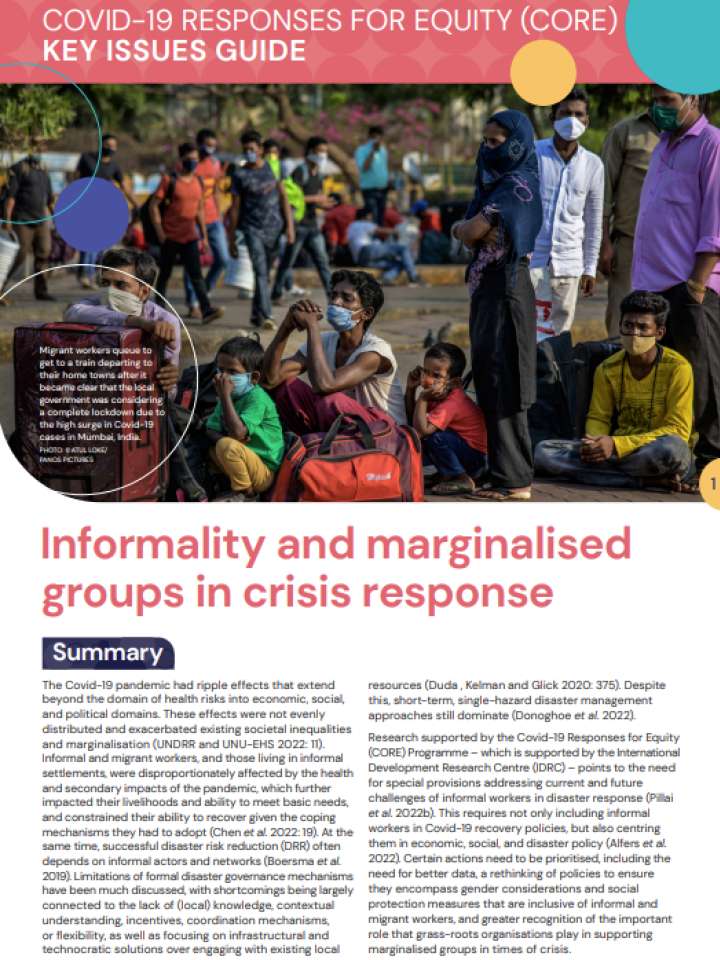Informality and marginalised groups in crisis response
This paper assesses how the Covid-19 pandemic had ripple effects that extend beyond the domain of health risks into economic, social, and political domains. These effects were not evenly distributed and exacerbated existing societal inequalities and marginalisation. Informal and migrant workers, and those living in informal settlements, were disproportionately affected by the health and secondary impacts of the pandemic, which further impacted their livelihoods and ability to meet basic needs, and constrained their ability to recover given the coping mechanisms they had to adopt. At the same time, successful disaster risk reduction (DRR) often depends on informal actors and networks.
The paper identifies the following key issues:
- Pre-existing vulnerabilities of informal workers and marginalised groups
- Impacts of the Covid-19 pandemic on informal workers
- Social protection did not reach informal workers
- The role of grass-roots organisations and mutual aid in response efforts
Explore further
